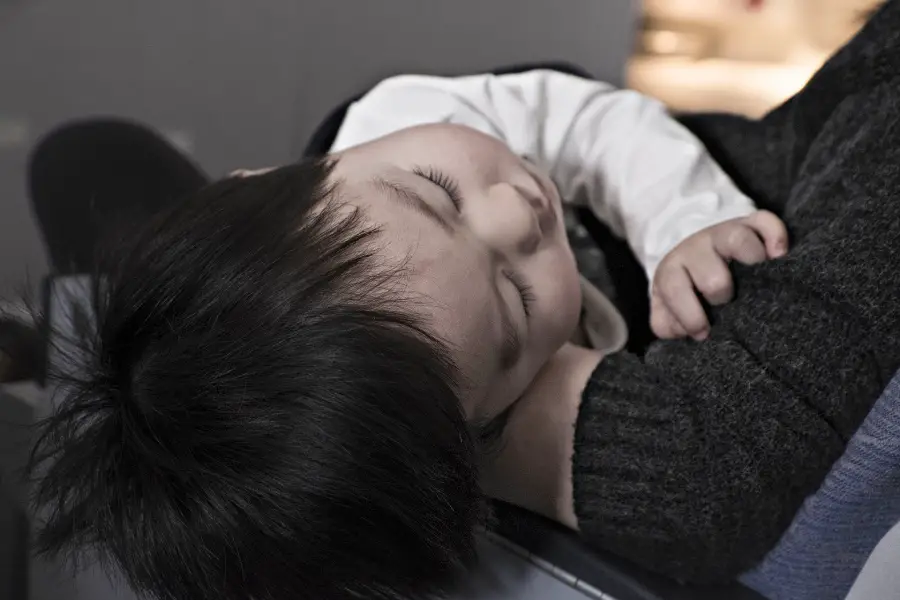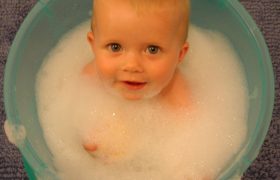Tips for Coping with Asthma in Kids

Children can develop asthma at any age and this can be very scary for parents. Some children develop asthma as infants and some kids develop asthma as toddlers and in later years. Asthma is usually caused by a cold or allergies but can be diagnosed as chronic and your child will have asthma for life. Some children have chronic bronchitis along with asthma and parents have to be aware when they hear their child starting to wheeze. It can happen anytime, a cold, family vacation, pollen, molds, dust, mildew, dander, and many other environmental products can set off an asthma attack. Asthma can also turn into Chronic Obstructive Pulmonary Disease (COPD) as your child grows into an adult. The main culprit is cigarettes so don’t smoke anywhere near a child who is asthmatic. Parents should take their child to a family doctor to get a proper diagnosis and then if the doctor feels this is going to be a problem for life, they will refer you to an allergist. Try and stay away from over the counter medication for asthma and follow the doctor’s orders and get your child on the correct medication. One of the scariest events for a parent with a child is when they can see their child is struggling with breathing.
What is asthma?
Asthma is a very challenging disease to live with and if you learn how to manage asthma for your child, you and your child can have a normal life. The main goal is to keep on top of asthma and keep it under control. The best thing to do is to work with a doctor and develop a good plan for managing asthma and stop attacks before they happen. You might have to change your family’s lifestyle and the things you like to do outside to prevent your child from having an attack. Your child might have to carry an inhaler and other medication for long term daily help and short term exacerbations. Parents will also have to have an emergency plan with caregivers and schools in case of a severe asthma attack.
Helping your child
Make sure you take your child in to see the doctor for regular visits and if some of the medication seems to be causing side effects, let the doctor know. You will be able to tell if your child is not acting right because some of the medication contains steroids and other ingredients that can cause children to be a bit more hyper at times.
It’s important to find out everything you can about asthma and living with it on a daily basis. Find out what causes your child’s symptoms and what precautions you should take to prevent the symptoms.
It’s important for parents to know how to use their child’s medication correctly. This includes the dosing instructions, how the asthma medication works to control your child’s asthma and any potential side effects. Inhalers come in a container that has metered doses. Steroids are used once every 12 hours and break through inhalers are used about every 4 to 6 hours. There are also nebulizers that come with a mask for your child’s face. It’s a small plastic mask that covers the face but the nose is exposed and the child breathes the vapor of the medication into their lungs. A nurse will take the time to show you how to use the nebulizer for smaller infants who can’t use an inhaler yet.
Parents should know that triggers are different for every child and they should be aware of what causes these triggers. You might want to write down when your child has an attack and what the family was doing when the attack happened. This way you can pinpoint if this is environmental or maybe your child smelled a strong chemical that you were cleaning with. Some perfumes can take a child’s breath away as well.
 Treatment for asthma has progressed significantly in the last 30 years. People that live with asthma in today’s world can live a normal life and continue to participate in sports compared to years ago. Some asthmatics have competed as Olympic athletes and have won. A peak and flow meter are handy to have around to monitor your breaths going in and going out. This meter is simple to use and a person basically blows into the meter to see if the little ball will reach the top of the meter. You could play a game with this with your child and tell them to blow the little ball as hard as they can to the top. This tells you how good their airflow is and helps you listen for wheezing.
Treatment for asthma has progressed significantly in the last 30 years. People that live with asthma in today’s world can live a normal life and continue to participate in sports compared to years ago. Some asthmatics have competed as Olympic athletes and have won. A peak and flow meter are handy to have around to monitor your breaths going in and going out. This meter is simple to use and a person basically blows into the meter to see if the little ball will reach the top of the meter. You could play a game with this with your child and tell them to blow the little ball as hard as they can to the top. This tells you how good their airflow is and helps you listen for wheezing.
Asthma and stress
Stress is also a cause of an asthma attack and so is lack of sleep. If your child isn’t sleeping right or getting enough sleep, their little bodies become tired and it’s harder to breathe. In addition, watch out for too much dairy in their diets. Dairy products can cause more mucus so your child will be coughing more so be aware. You can always teach your child breathing exercises and both of you can rest as well. Deep breathing is good for the lungs and the best exercise for the lungs is swimming because your child will gain more endurance from swimming as much as possible.
When your child has asthma and is younger it’s a bit more of a challenge because they don’t understand what is going on. You still have to encourage your child to be active and work hard at keeping their asthma under control. Remember to keep all doctor’s appointments, including the allergist and pulmonologist if your child is required to see one. Have an emergency plan and talk to everyone including your child about the safety of following the plan. Keep second-hand smoke away from your child and keep them away from places where people are smoking. Keep your house free of allergens and watch for dust mites because their droppings trigger off asthma attacks. Cockroaches and pet dander are also culprits for triggering asthma attacks. Give your child their medication on a regular basis and when they are older make sure they are responsible and know how to use their prescribed medication.
There are always support groups in your community and online that you can join and talk about the issues of having children with asthma. You can learn many tips from other people who are going through the same thing you are.







